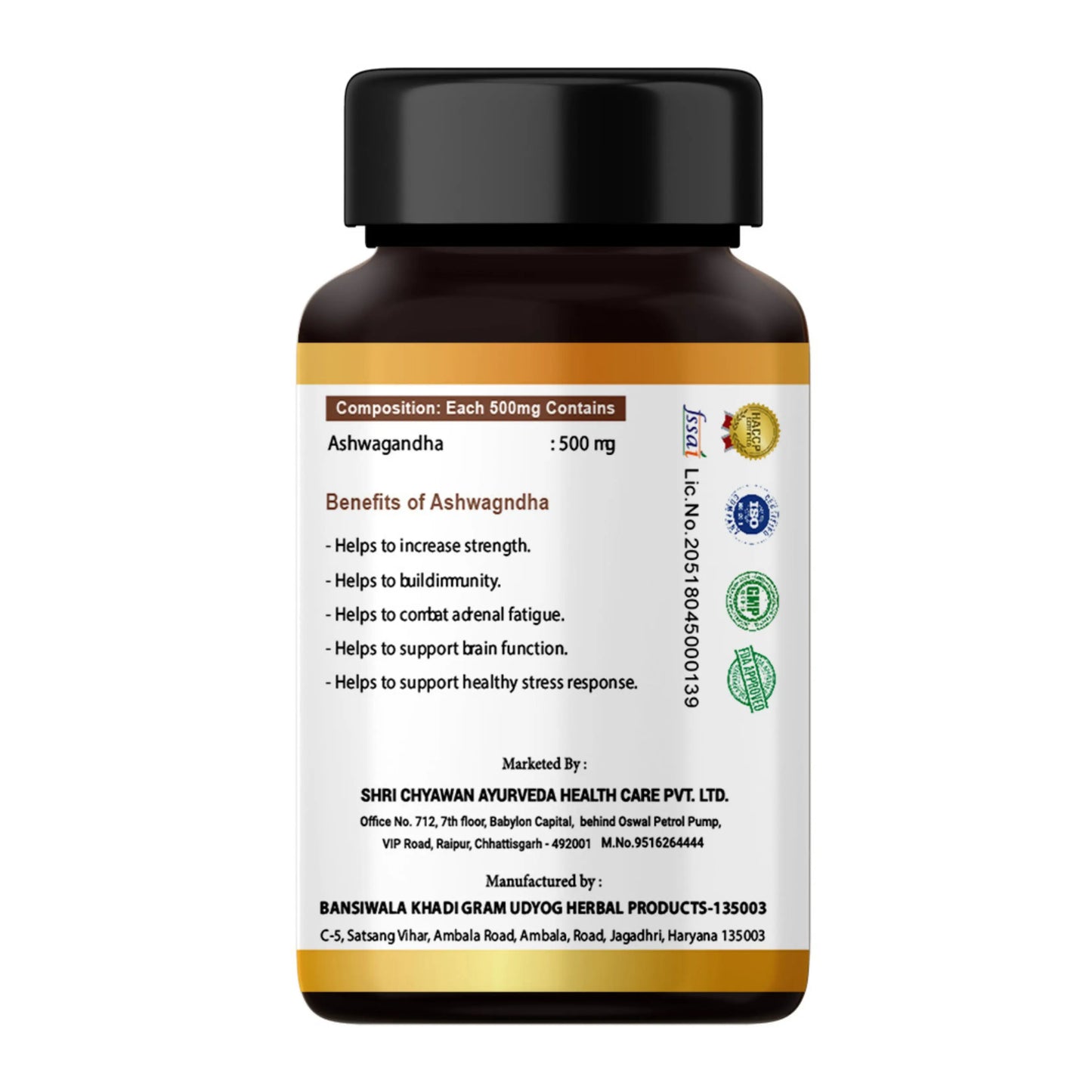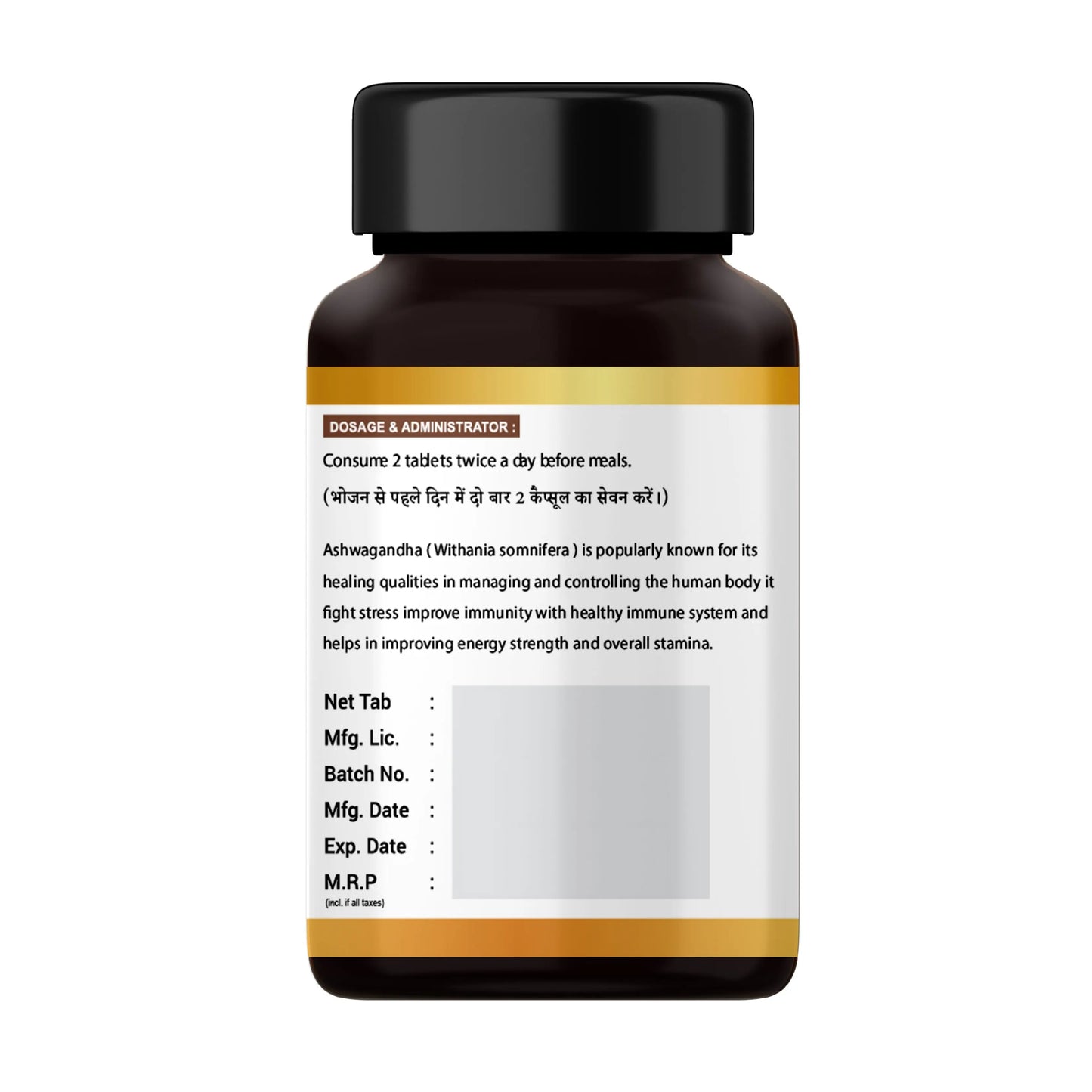Introduction
Ashwagandha, scientifically known as Withania somnifera, is a powerful adaptogenic herb that has been used for centuries in Ayurvedic medicine. Known for its wide-ranging health benefits, this herb has gained popularity in modern wellness circles as a natural remedy for various physical and mental health issues. In this blog post, we will explore the numerous benefits of ashwagandha, its historical significance, and how it can enhance your overall well-being.
Overview of Ashwagandha
Ashwagandha is a small shrub native to India, the Middle East, and parts of Africa. The roots and berries of the plant are used to make medicine. Its name translates to "smell of a horse," which refers to both its unique scent and its ability to enhance strength and vitality. Ashwagandha is categorized as an adaptogen, meaning it helps the body adapt to stress and promotes balance. Its active compounds, known as withanolides, are believed to contribute to its numerous health benefits.
Historical Uses
For thousands of years, ashwagandha has been a cornerstone of Ayurvedic medicine, where it has been employed to support physical and mental health. Historically, it has been used to boost energy levels, enhance stamina, and improve overall vitality. Ancient texts mention its role in promoting longevity, reducing stress, and balancing the body's systems. Today, ashwagandha continues to be revered for its therapeutic properties, bridging traditional wisdom with modern scientific research.
What is Ashwagandha?
Ashwagandha, scientifically known as Withania somnifera, is an adaptogenic herb that has been celebrated for its wide-ranging health benefits. Commonly referred to as "Indian ginseng" or "winter cherry," it is renowned for its ability to help the body manage stress and promote overall wellness. Ashwagandha is characterized by its small yellow flowers and red berries, and its roots are primarily used for medicinal purposes. This herb has gained popularity in recent years, particularly among those seeking natural solutions for anxiety, fatigue, and various health conditions.
Botanical Classification
- Kingdom: Plantae
- Clade: Angiosperms
- Clade: Eudicots
- Clade: Asterids
- Order: Solanales
- Family: Solanaceae
- Genus: Withania
- Species: Withania somnifera
Ashwagandha belongs to the Solanaceae family, which includes other well-known plants like tomatoes and eggplants. The plant typically grows up to 1.5 meters tall and has ovate leaves and small, bell-shaped flowers. Its root contains the most active compounds, including withanolides, alkaloids, and flavonoids, which contribute to its medicinal properties.
Traditional Medicine Background
Ashwagandha has a rich history in Ayurvedic medicine, where it has been used for over 3,000 years. It is considered a "Rasayana," or rejuvenating herb, known for promoting longevity, vitality, and overall health. Traditionally, it has been utilized to:
- Enhance physical strength and endurance
- Support cognitive function and memory
- Reduce stress and anxiety
- Promote restful sleep
- Improve sexual health and fertility
In addition to Ayurveda, ashwagandha has also been used in other traditional medicine systems around the world. Its adaptogenic properties make it a valuable herb for combating stress and promoting balance in the body, aligning with the increasing interest in holistic health practices today.
Health Benefits of Ashwagandha
Ashwagandha is celebrated for its numerous health benefits, making it a popular choice in herbal medicine. Here are some of its key advantages:
Stress and Anxiety Reduction
Ashwagandha is well-known for its adaptogenic properties, helping the body adapt to stress and reduce anxiety levels. Studies suggest that it may lower cortisol levels, the hormone associated with stress, leading to a calmer mind and enhanced emotional resilience.
Enhancing Energy Levels
By supporting adrenal health and balancing hormone levels, ashwagandha can help boost energy and combat fatigue. Many users report feeling more energized and less fatigued, allowing for improved physical performance and daily productivity.
Improving Sleep Quality
Ashwagandha has been linked to better sleep quality due to its calming effects on the nervous system. It can help reduce insomnia symptoms and promote a more restful night's sleep, contributing to overall well-being.
Boosting Immune Function
The herb is known for its immune-boosting properties, helping the body fend off infections and illnesses. By enhancing the activity of immune cells, ashwagandha supports overall immune health and resilience.
Supporting Cognitive Function
Research indicates that ashwagandha may improve cognitive abilities, including memory and focus. Its neuroprotective properties can support brain health, potentially reducing the risk of neurodegenerative diseases.
Anti-Inflammatory Properties
Ashwagandha contains compounds that exhibit anti-inflammatory effects, helping to reduce inflammation in the body. This can be beneficial for conditions such as arthritis and other inflammatory disorders, promoting overall health and comfort.
How to Use Ashwagandha
Ashwagandha can be incorporated into your wellness routine in various forms and dosages. Here’s how to use it effectively:
Forms of Ashwagandha
- Powder: Ashwagandha powder can be mixed into smoothies, teas, or warm milk. It has a slightly earthy taste and can be added to recipes for a nutritional boost.
- Capsules: This form is convenient for those who prefer a quick and easy way to take ashwagandha. Capsules typically contain standardized extracts, ensuring a consistent dosage.
- Extracts: Liquid extracts or tinctures provide a concentrated form of ashwagandha. These can be added to water or taken directly under the tongue for faster absorption.
Recommended Dosages
- General Use: A common dosage for ashwagandha powder is 1 to 2 teaspoons (about 3 to 6 grams) daily. For capsules, the typical dose ranges from 300 to 500 mg, taken once or twice daily.
- Stress and Anxiety: Higher doses may be effective for stress management, with some studies using up to 600 mg of standardized extract daily.
- Consultation: It's advisable to consult with a healthcare provider for personalized dosage recommendations, especially if you're pregnant, nursing, or have existing health conditions.
Combining with Other Supplements
- Adaptogens: Ashwagandha can be combined with other adaptogenic herbs like rhodiola or holy basil for enhanced stress relief.
- Nutrients: Pairing ashwagandha with magnesium or B vitamins may support energy levels and overall well-being.
- Caution: Always consult a healthcare professional before combining ashwagandha with other supplements, especially if you are taking medications, to avoid potential interactions.
Potential Side Effects and Precautions
While ashwagandha is generally considered safe for most people, it’s important to be aware of potential side effects and who should avoid its use.
Common Side Effects
- Digestive Issues: Some individuals may experience stomach upset, diarrhea, or nausea when taking ashwagandha, particularly in higher doses.
- Drowsiness: Due to its calming effects, ashwagandha may cause drowsiness or sedation, especially if combined with other sedatives.
- Allergic Reactions: Rarely, some people may have allergic reactions, leading to symptoms like itching, rash, or difficulty breathing.
- Hormonal Effects: Ashwagandha can influence hormone levels, which may lead to changes in menstrual cycles or affect thyroid function.
Who Should Avoid Ashwagandha
- Pregnant or Nursing Women: Due to its potential effects on hormones and uterine contractions, it’s best to avoid ashwagandha during pregnancy and breastfeeding.
- Individuals with Autoimmune Diseases: Those with conditions like lupus, multiple sclerosis, or rheumatoid arthritis should consult a healthcare provider before using ashwagandha, as it may stimulate the immune system.
- Thyroid Disorders: People with hyperthyroidism or thyroid issues should avoid ashwagandha unless supervised by a healthcare professional.
- Surgery Patients: It’s advisable to stop taking ashwagandha at least two weeks before any scheduled surgery, as it may affect blood pressure and sedation.
While ashwagandha offers numerous health benefits, it’s essential to use it mindfully. Always consult a healthcare professional if you have concerns about potential side effects or interactions with other medications.
Scientific Research and Studies
Ashwagandha has garnered attention in the scientific community, leading to numerous studies exploring its health benefits and efficacy. Here’s a summary of key findings.
Summary of Key Studies
- Stress and Anxiety: A randomized controlled trial published in the Journal of Clinical Psychiatry found that ashwagandha significantly reduced stress and anxiety levels in participants compared to a placebo group.
- Cognitive Function: Research in the Journal of Dietary Supplements indicated that ashwagandha supplementation improved cognitive function and memory in older adults.
- Sleep Quality: A study published in the Journal of Ethnopharmacology demonstrated that ashwagandha extract improved sleep quality and reduced insomnia symptoms in participants.
- Immune Support: In an investigation reported in Phytotherapy Research, ashwagandha was found to enhance immune function by increasing white blood cell count and overall immune response.
Evidence-Based Benefits
The evidence supporting the benefits of ashwagandha includes:
- Adaptogenic Properties: Research highlights its ability to help the body adapt to stress, lowering cortisol levels and promoting a sense of calm.
- Anti-Inflammatory Effects: Studies show that ashwagandha possesses anti-inflammatory properties, potentially aiding in conditions characterized by inflammation.
- Hormonal Balance: Evidence suggests that ashwagandha may help balance hormone levels, particularly in cases of adrenal fatigue and thyroid dysfunction.
- Muscle Strength and Recovery: Some studies indicate that ashwagandha supplementation can enhance muscle strength and recovery, making it popular among athletes.
The scientific research surrounding ashwagandha continues to evolve, with many studies affirming its potential health benefits. As with any supplement, it's advisable to consult healthcare professionals before starting ashwagandha to ensure it's appropriate for individual health needs.
Shri Chyawan Ayurveda's Ashwagandha Capsule
Ashwagandha Capsule: It is the most important and miraculous ayurvedic medicine offering number of benefits. It also contains certain ingredients that help calm the brain, reduce swelling, lower blood pressure, etc. It is also called Winter Cherry.
Ashwagandha Capsule Ingredients: It consists of pure Ashwagandha root extracts.
Ashwagandha for Men:
Ashwagandha is a remarkable herb with a myriad of benefits for men. Whether it's enhancing physical performance, promoting mental well-being, or supporting sexual health, this adaptogen is a versatile ally in the journey to optimal health and vitality. Its benefits for men are manifold, encompassing physical, mental, and emotional well-being.
Ashwagandha for Women:
Ashwagandha offers immense benefits for women, addressing a wide range of health concerns from hormonal balance and fertility to stress management, cognitive function, and skin health. It offers numerous incredible benefits for women's health and well-being. Its natural properties can support physical, emotional, and mental health in various ways.
Ashwagandha Capsule Benefits:
-
Reduces Stress and Anxiety: Ashwagandha is best and popularly known for its ability to reduce stress and anxiety. It’s also classified as an adaptogen, a substance that helps the body to cope with stress.
-
Improves Sleep Quality: Ashwagandha effectively helps to improve sleep quality and regulates your sleep cycle. It helps to combat fatigue and boosts energy.
-
Improves Testosterone Levels: Ashwagandha helps to improve testosterone levels, which improves overall physical performance and boosts vitality and stamina.
-
Boosts Immunity: Ashwagandha is known to increase the White Blood Cells, which thereby helps to boost your overall immunity to fight various illness.
-
Blood Sugar and Inflammation: Ashwagandha helps to maintain ideal blood sugar levels, reduces inflammation, and improves skin health.
- Natural & Pure: Ashwagandha capsules are made from Ashwagandha root extracts and they are pure and natural.
How to use: Consume 2 capsules twice a day before meals.
Conclusion
In summary, ashwagandha offers a range of impressive health benefits, including stress and anxiety reduction, enhanced energy levels, improved sleep quality, boosted immune function, and support for cognitive abilities. Its historical use in traditional medicine further underscores its significance in promoting overall wellness.
Final Thoughts
As the popularity of ashwagandha continues to rise, it’s essential to approach its use with informed awareness. While many individuals may find it beneficial, consulting with a healthcare professional is recommended to ensure safe and effective integration into your wellness routine. Embracing ashwagandha may not only enrich your health journey but also bring a sense of balance and vitality to your daily life.
Free Consultation with our Expert Doctor- 📞📞 95162 64444










